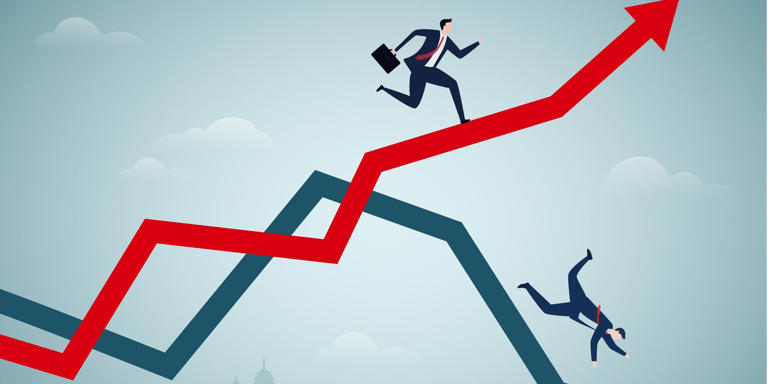According to JPMorgan analyst Matthew Boss, the current state of the U.S. economy reflects a “selective recession,” wherein lower-income segments are grappling with financial challenges while higher-income groups remain relatively insulated. This observation underscores a concerning trend of economic divergence, where disparities in wealth and income have widened, exacerbating inequalities across society.
Boss emphasized the stark contrast between the economic realities faced by different strata of the population. While affluent individuals may have the financial cushion to weather economic turbulence, those with lower incomes are finding it increasingly difficult to meet their basic needs amidst rising costs and diminishing savings. This divergence in economic fortunes highlights systemic inequalities that have persisted and deepened over time, raising questions about the inclusivity and fairness of economic growth.
The economic strain felt by lower-income Americans is particularly acute, with many struggling to cope with the relentless pressure of inflation and stagnant wages. Boss cited survey data indicating that over 70% of low-income consumers are experiencing financial hardship, indicating the widespread nature of the economic challenges facing this demographic. These individuals are often forced to make difficult choices between essential expenses, such as rent, food, and healthcare, further exacerbating their financial vulnerability.
In addition to income disparities, economist David Rosenberg’s persistent warnings of an impending recession add to the prevailing sense of economic uncertainty. Despite pockets of positive economic indicators, Rosenberg remains steadfast in his belief that the underlying vulnerabilities in the economy have yet to be addressed. He contends that the recent uptick in GDP growth and consumer spending may have merely delayed the inevitable downturn, rather than signaling a sustainable recovery.
One of the primary drivers of economic anxiety is inflation, which continues to erode the purchasing power of households across the income spectrum. While inflationary pressures have moderated somewhat from their peak levels in 2022, the cumulative impact of sustained price increases has taken a toll on household finances. Many Americans, including those in the middle-income bracket, report feeling the pinch as their incomes fail to keep pace with the rising cost of living.
Looking ahead, concerns about a weakening job market and prolonged high-interest rates have further fueled recession fears. The New York Fed’s estimate of a 50-50 chance of a downturn within the next 12 months underscores the pervasive sense of economic fragility. As policymakers grapple with the daunting task of steering the economy towards stability, addressing income inequality and promoting inclusive growth must be top priorities. By implementing targeted interventions to support vulnerable populations and foster economic resilience, policymakers can mitigate the adverse impacts of recessionary pressures and build a more equitable future for all Americans.
